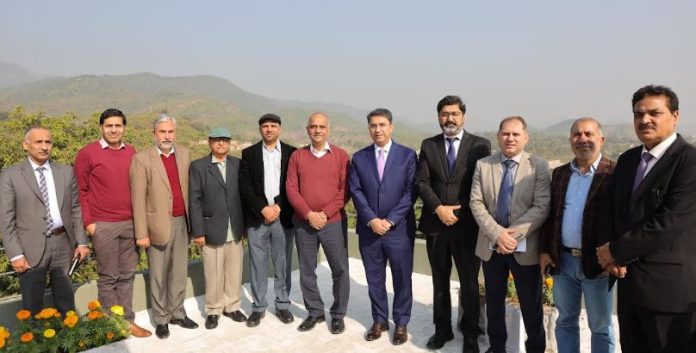ISLAMABAD, NOV 26 /DNA/ – The Pakistan Institute of Development Economics (PIDE) hosted a specialised seminar titled “PIDE & PBS Deliberations on Data for Policy Research,” bringing together researchers, faculty members, practitioners, policymakers, and students to explore the significance of credible national data in shaping Pakistan’s development agenda. Dr. Naeem Uz Zafar, Chief Statistician of the Pakistan Bureau of Statistics (PBS), was the learned speaker who is a leading authority in national statistical systems, census operations, and data governance in Pakistan. The seminar was moderated by Dr Faheem Jehangir, Dean (Policy), who emphasised the need to enhance collaboration between data producers and data users. The session provided an invaluable opportunity to engage directly with the Chief PBS, the custodian of the national data powerhouse, and to understand better the methodologies, strengths, limitations, and policy implications of major statistical exercises.
Dr. Naeem highlighted significant gaps in Pakistan’s data ecosystem, pointing out that although social indicators are prioritised, the actual economy, including value chains, productivity, and industrial clusters, remains insufficiently researched. He stressed the importance of adopting international classification standards and geotagging frameworks to enhance structural analysis. Referring to the Economic Census, he observed that the new geotagged economic framework enables better mapping of economic activity and service delivery across regions.
A significant part of his address concentrated on agriculture, where systematic data collection on crops, livestock, and machinery now better aligns with rural decision-making cycles. He highlighted ongoing productivity gaps, including limited adoption of certified seeds, unequal access to machinery, and the dominance of small subsistence farms. He emphasized how understanding demand-supply gaps and economies of scale can lead to more effective policy interventions.
Discussing governance and public service delivery, Dr. Naeem illustrated how combining census data with geotagged information on schools, health facilities, and public infrastructure can help identify mismatches between supply and community needs. He underscored the importance of digitized monitoring systems and improved evaluation frameworks for better public spending.
During the Question-and-Answer session, Dr. Naeem encouraged young researchers to adopt modern analytical tools such as R, Python, and geospatial software to deepen Pakistan’s analytical capacity. He appreciated PIDE’s efforts to bridge the gap between data producers and data users, calling such collaborations essential for strengthening Pakistan’s policy ecosystem.
Dr. Nadeem Javaid, Vice Chancellor of PIDE, delivered the closing remarks, highlighting that official statistics are essential for effective public policy. He noted that without reliable data, discussions become abstract, planning turns into guesswork, and reforms have difficulty implementing. While praising the collaboration between PIDE and PBS, he recognised the significant potential to foster evidence-based decision-making, guide resource distribution, and support research that can genuinely shape development priorities.
The session closed with a shared commitment from PIDE and PBS to enhance cooperation and advance data-driven policy research to support Pakistan’s transition toward an evidence-based governance framework.

















